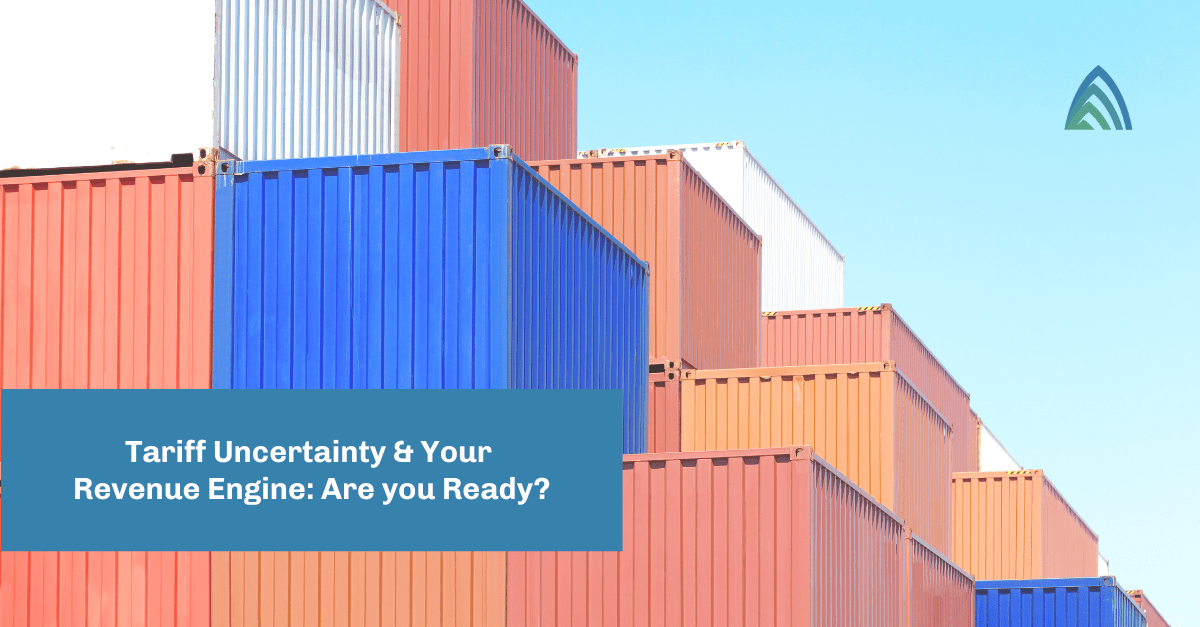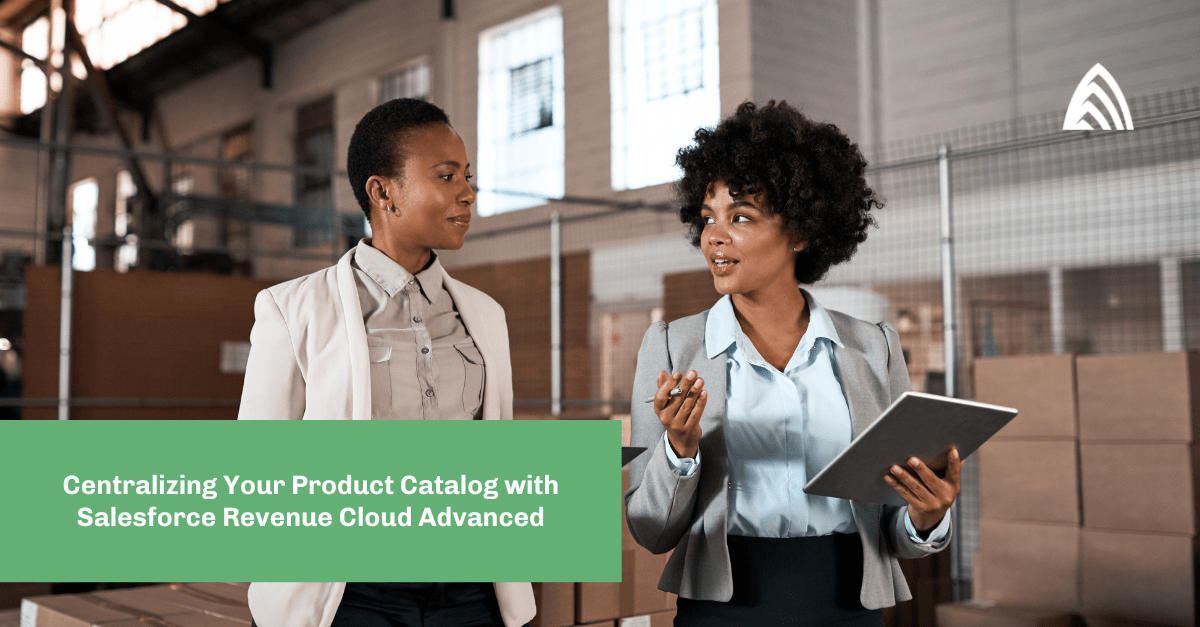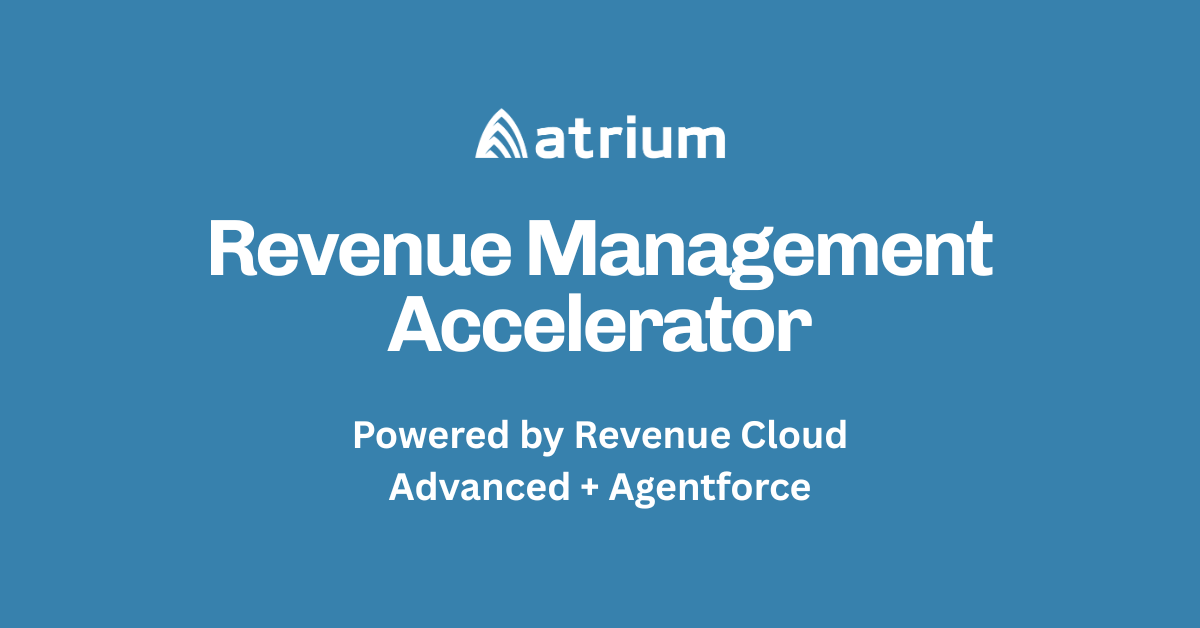Global trade dynamics are constantly shifting, and the prospect of new or adjusted tariffs presents a significant challenge for businesses worldwide. While the political landscape evolves, the operational impact on core business functions, particularly Revenue Operations, demands proactive attention.
For organizations leveraging Salesforce, understanding how potential tariff changes affect your Configure-Price-Quote (CPQ) and broader Revenue Management processes is crucial for maintaining profitability, agility, and customer trust.
The ripple effect: How tariffs impact the revenue lifecycle
Tariffs, essentially taxes on imported goods, directly influence the cost of components, raw materials, or finished products. This creates a ripple effect across your entire Lead-to-Revenue (LTR) lifecycle:
- Increased costs: The most direct impact is higher costs for goods, squeezing margins if prices aren’t adjusted.
- Supply chain volatility: Tariffs can force shifts in sourcing, potentially leading to delays, new supplier onboarding challenges, and inventory fluctuations.
- Pricing complexity: Pricing strategies must adapt quickly to reflect new landed costs, potentially varying by product component origin, destination market, or customer segment.
- Demand shifts: Price increases driven by tariffs can impact customer demand and buying behavior.
The CPQ pressure point
Your CPQ system sits at the heart of translating market offerings into sellable quotes. Tariff uncertainty puts significant pressure on its effectiveness:
- Dynamic pricing: Can your pricing rules accurately and dynamically incorporate tariff-related cost increases? Relying on static price books becomes untenable. You need the ability to potentially adjust pricing based on component origin, shipping routes, or specific customer agreements impacted by trade policies. Maintaining accurate margins requires real-time cost visibility during the quoting process.
- Product configuration: If tariffs make certain components prohibitively expensive, can your CPQ guide sellers to viable alternatives? Configuration rules may need updating to reflect sourcing changes or suggest tariff-friendly options.
- Quoting accuracy & validity: Quotes must reflect the true cost, including tariffs, to avoid margin erosion or difficult post-sale adjustments. This also impacts quote validity periods; how long can you honor a price when underlying costs might change rapidly?
- Approval workflows: Complex pricing adjustments or configurations driven by tariff impacts may require more rigorous approval workflows to ensure profitability.
Revenue management under strain
Beyond the quote, tariffs impact the entire revenue management flow:
- Forecasting: Predicting demand becomes harder when prices are volatile due to tariffs. Historical data may be less relevant, requiring more sophisticated forecasting models that account for price elasticity and potential market shifts.
- Order management: Supply chain disruptions linked to tariffs can impact order fulfillment timelines and accuracy. Your order management system needs visibility into potential delays.
- Billing & invoicing: Invoices must accurately reflect all costs, including any passed-on tariffs. Lack of clarity can lead to disputes, delayed payments, and customer dissatisfaction.
- Revenue recognition: Ensuring compliance with standards like ASC 606 requires accurate cost tracking, which tariffs complicate.
Building resilience: Leveraging Salesforce and an intelligent data strategy
How can businesses prepare their revenue operations for this uncertainty? The key lies in agility, visibility, and intelligence — areas where Salesforce, combined with a robust data strategy, excels:
- Agile CPQ & Revenue Cloud: Salesforce CPQ and Revenue Cloud Advanced (RCA) offer the flexibility needed. Configure complex pricing rules (cost-plus, attribute-based), leverage guided selling to direct reps, and implement dynamic approval workflows. Treat your product catalog and pricing as dynamic elements, not static lists.
- Solid data foundation: Accurate pricing and forecasting depend on clean, integrated data. This means unifying supplier costs, logistics data, inventory levels, and potentially external tariff rate information. Platforms like Salesforce Data Cloud or Snowflake can serve as the central hub, feeding reliable data into your CPQ and analytics tools. (Remember Atrium’s emphasis: Data cleansing and management are not one-time tasks but ongoing necessities.)
- Actionable analytics & AI: Utilize CRM analytics to gain real-time visibility into margin impacts by product or region. Perform scenario planning to understand potential tariff effects. Leverage AI for predictive forecasting that incorporates external factors, or use Agentforce to help reps quickly understand cost implications or find alternative configurations.
- Seamless integration: Ensure your CPQ/Revenue Cloud is tightly integrated with ERP (for costs), supply chain management systems, and potentially third-party tariff data providers. Tools like MuleSoft are essential for building and maintaining these connections.
Partnering for preparedness
Navigating the complexities of tariffs within your revenue lifecycle requires more than just technology; it demands strategic planning and deep expertise across CRM, data, AI, and specific business processes like CPQ and billing.
At Atrium, we combine our deep experience in revenue management (70+ successful engagements) and Salesforce Revenue Cloud with our foundational expertise in data science and AI. We help clients assess their current state (through diagnostics like Forensic Health Checks), design resilient future-state architectures (Solution Blueprints), and implement the necessary technology and process changes.
Don’t let tariff uncertainty disrupt your revenue engine. Ensure your Salesforce platform and revenue operations are agile, data-driven, and ready to adapt.
Interested in assessing your Revenue Management platform’s readiness? Learn more about our Salesforce Revenue Cloud consulting services.






